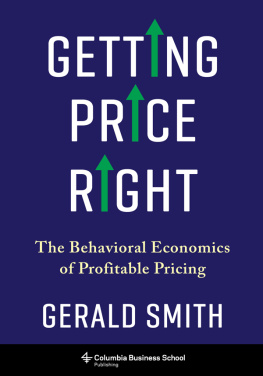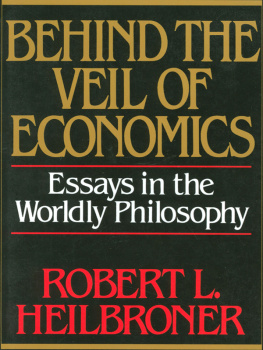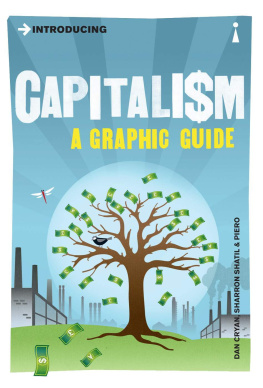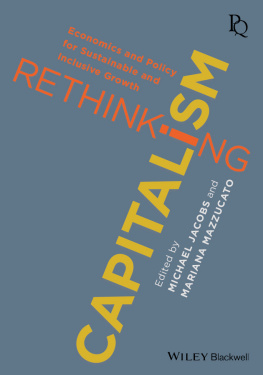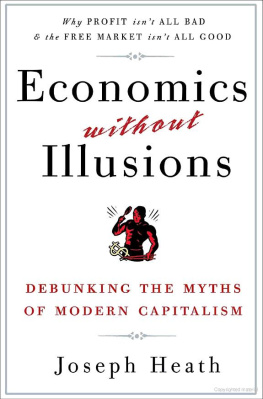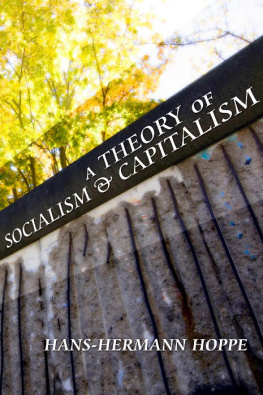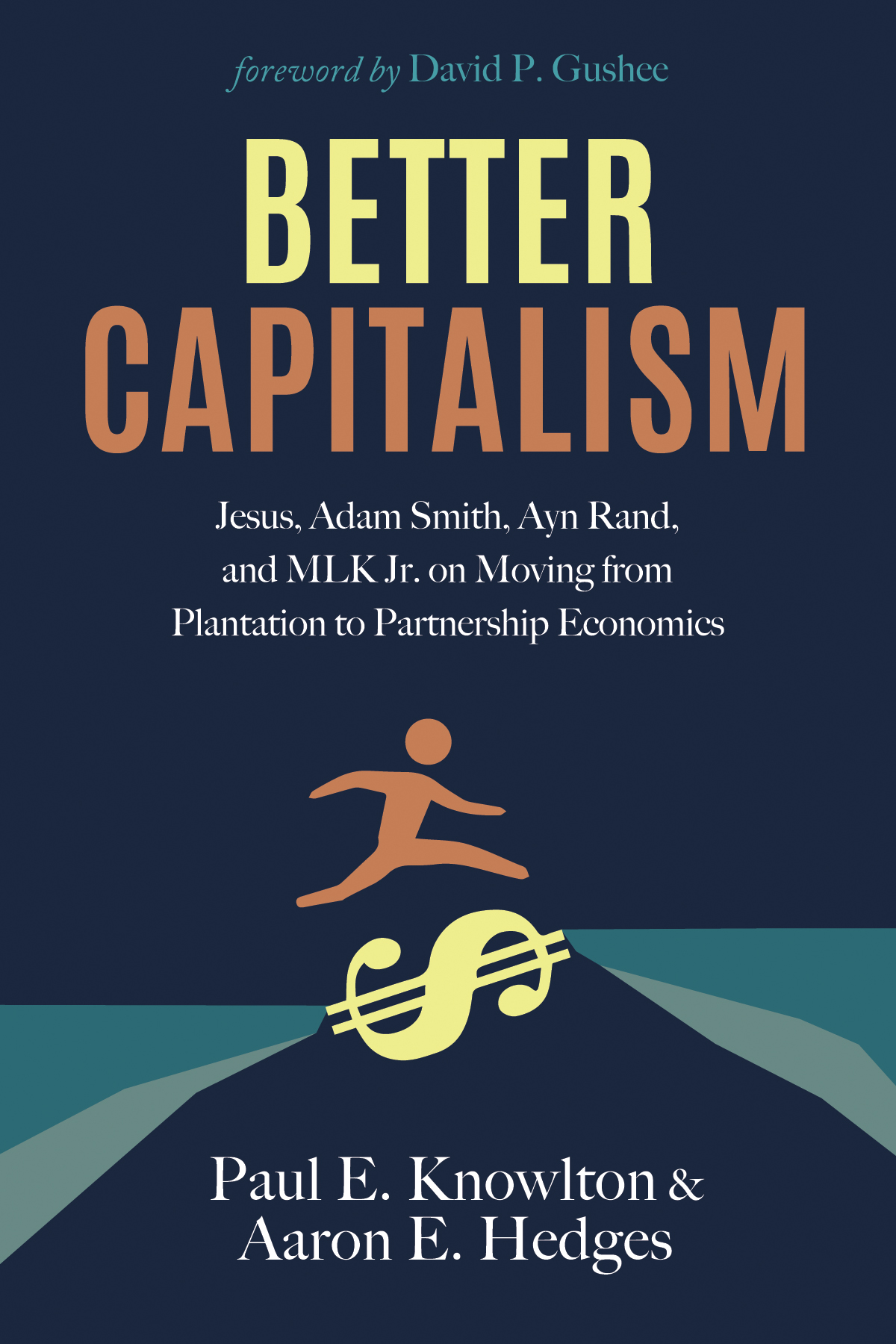Better Capitalism is an eloquent and articulate reminder of the importance of understanding economics in the context of our communities, country, and roles as business leaders. In explaining the profound connection between economics and theology, the authors have provided a strong case for the critical need for partnership between business leaders and communities to create a stronger and more robust economy that provides benefit to all.
Tony Reid
Senior vice president (retired), Marriott International
This book plunges the reader right into the interface of theology (faith) and economics, exactly where thoughtful, responsible adults need to be situated in our crisis-marked world. Knowlton and Hedges pursue a simple paradigm of plantation vs. partnership. Plantation in their usage refers to a winner-take-all economics that exploits others for self-advantage. Partnership concerns an economic practice of mutuality that contributes to the common good while attending to ones own interest. This simple either/or is explored in rich directions including finance, corporations, government, and culture. Along the way we get a healthy rereading of Adam Smith and Ayn Rand, away from a privatistic distortion. This book merits close, sustained attention as a compelling move beyond both careless thinking and easy ideology.
Walter Brueggemann
Professor, Columbia Theological Seminary
American capitalism. We are all part of it; we all know there has to be a better way. Knowlton and Hedges reject complacency by confronting the problems with insight. They propose better ways (Partnership Economics) with data, experience, and moral conviction; and they invite readers to tap the resources of imagination, dialogue, and courage. You may not agree with all their solutions, but this book will change how you think about your commitments and financial decisionscorporate, professional, and personal.
R. Alan Culpepper
Dean and professor emeritus, McAfee School of Theology, Mercer University
I believe our country and world would be a better place if the principles of Partnership Economics were widely adopted. I will use this book in my personal life as I make choices about which companies I wish to support with my purchases and recommendations to family and friends.
Julie Nybakken
Mathematics educator
I applaud the authors diligence and I look forward to seeing the influence on our culture that this excellent book produces. I find the work to be original and thought-provoking.
Deric Milligan
Cofounder and CEO, Inheritance of Hope
What an impressive, ambitious effort to tackle such weighty topics and identify and investigate a series of connective tissue between them all.
Stan Seymour
Attorney and associate pastor
This is a great work, very timely and needed. The authors are to be commended for their efforts, ideas, and work.
Gary Skeen
President emeritus, CBF Church Benefits Board
As a mid-level employee of a Fortune company and a former seminarian, this was certainly relevant reading. Where a partnership approach is displayed, all kinds of growth follows!
Aaron Jarvinen
Supply chain professional
I was fascinated by this book and grateful that I read it. As a local church pastor, I found the topic and scope to be beyond my usual areas of interest and I might not have bought this book to add to my library. I would have missed out! The book is clearly written and accessible to those of us who do not regularly follow economics. Reading this compelling book was a good gift to my ministry.
James Dock
Hollingsworth, senior pastor
Better Capitalism
Jesus, Adam Smith, Ayn Rand, and MLK Jr.
on Moving from Plantation to Partnership Economics
Paul E. Knowlton & Aaron E. Hedges
Foreword by David P. Gushee
Better Capitalism
Jesus, Adam Smith, Ayn Rand, and MLK Jr. on Moving from Plantation
to Partnership Economics
Copyright 2021 Paul E. Knowlton and Aaron E. Hedges. All rights reserved. Except for brief quotations in critical publications or reviews, no part of this book may be reproduced in any manner without prior written permission from the publisher. Write: Permissions, Wipf and Stock Publishers, W. th Ave., Suite , Eugene, OR 97401 .
Cascade Books
An Imprint of Wipf and Stock Publishers
W. th Ave., Suite
Eugene, OR 97401
www.wipfandstock.com
paperback isbn: 978-1-7252-8093-9
hardcover isbn: 978-1-7252-8094-6
ebook isbn: 978-1-7252-8095-3
Cataloguing-in-Publication data:
Names: Knowlton, Paul E., author. | Hedges, Aaron E., author. | Gushee, David P., foreword.
Title: Better capitalism : Jesus, Adam Smith, Ayn Rand, and MLK Jr. on moving from plantation to Partnership Economics / Paul E. Knowlton and Aaron E. Hedges; foreword David P. Gushee.
Description: Eugene, OR: Cascade Books, 2021 | Includes bibliographical references.
Identifiers: isbn 978-1-7252-8093-9 ( paperback ) | isbn 978-1-7252-8094-6 ( hardcover ) | isbn 978-1-7252-8095-3 ( ebook )
Subjects: LCSH: Capitalism, United States, Societies, etc. | WealthReligious aspectsChristianity. | Church work with the poor.
Classification: HB501 .B467 2021 ( paperback ) | HB501 ( ebook )
02/01/21
To Rev. Dr. David P. GusheeWith abiding gratitude
Who as our professor taught us healing
through transforming initiatives
and now as our friend partners
in this transforming initiative.
Foreword
David P. Gushee
Past President, American Academy of Religion
Past President, Society of Christian Ethics
B etter Capitalism is an extraordinary creative achievement, without parallel in the literature of economic and business ethics, Christian or otherwise. Paul Knowlton, JD, MDiv, and Aaron Hedges, MBA, MDiv, here engage pretty much the entire landscape of modern economic life with a realistic but values-rich challenge to move beyond what they call plantation economics and instead move to what they call Partnership Economics .
In three sections, Paul and Aaron review the state of our economic life, rethink its values and practices, and then propose practical initiatives to relive pretty much every substantial sector of personal, corporate, and governmental economic affairs.
When Aaron and Paul first approached me about helping to support the development of this project through the Mercer Center for Theology and Public Life, I had no idea that it would grow into the magnificent work that it has finally become.
I first knew these men as seminary students whom I had the privilege to teach at Mercer University here in Atlanta.
Aaron came to graduate school with extensive nonprofit and business experience. He also arrived equipped with a tremendous mind for moral theory, further evidenced by his graduating top of the class in both the MDiv and MBA programs. He has lived the organizational life from first paid employee of an entrepreneurial start-up to chief operating officer as the organization has grown to serve families from forty-five states. Aaron has consulted for small businesses and served in multicultural ministries ranging from sports camps for urban youth to church planting in Andean Bolivia.
Paul arrived with an unusually broad and diverse background, beginning with his start as a first generation Cuban-American and some years as a foster child. His engineering undergraduate degree equipped him with the ability to imagine and build physically, as well as opportunities to advance rapidly through his chosen corporate career. Pauls legal training and experience has gifted him with analytical skills to deconstruct and reconstruct. To his foundations of engineering, law, and business he has added insights from his seminary training, for a truly interdisciplinary approach to every question.


